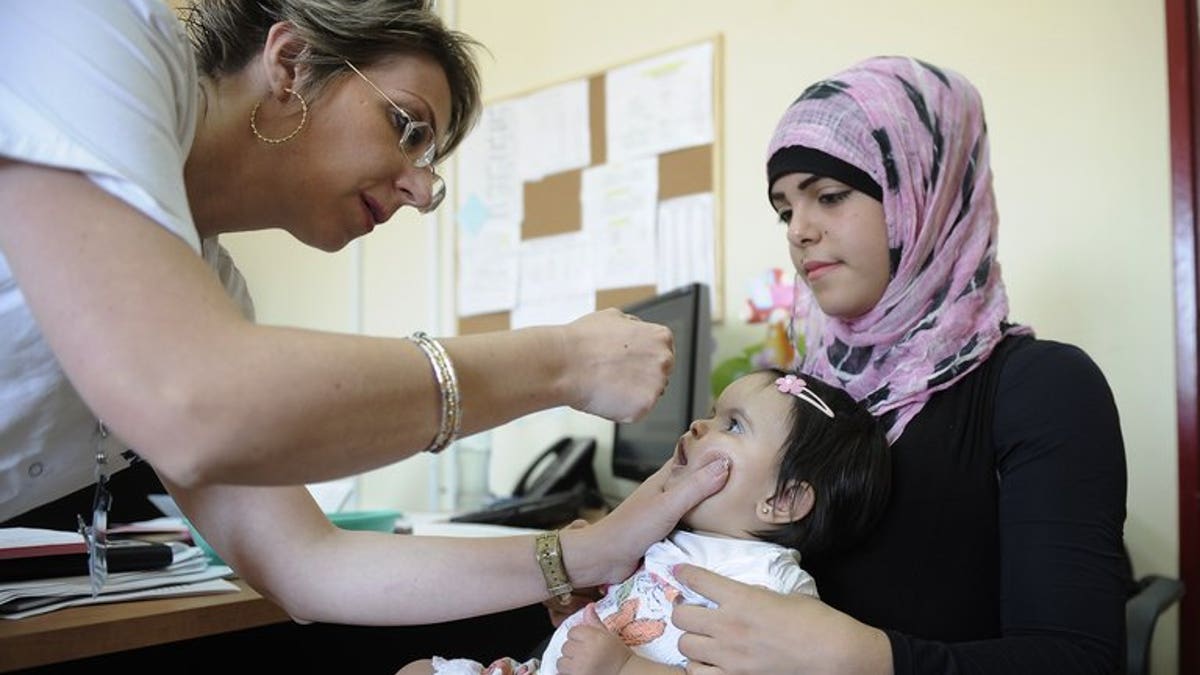
A Bedouin child receives a vaccine against polio at a clinic in Rahat on August 5, 2013. Israel took its polio vaccination campaign nationwide on Sunday, saying a two-week vaccination effort in the south was not enough to curb the threat of an outbreak of the virus. (AFP/File)
JERUSALEM (AFP) – Israel took its polio vaccination campaign nationwide on Sunday, saying a two-week vaccination effort in the south was not enough to curb the threat of an outbreak of the virus.
"Beginning today, children born after 1.1.2004 will be vaccinated with two drops of a weakened live (attenuated) polio strain, throughout the country," the health ministry said in a statement.
"The decision to vaccinate nationwide is due to the ongoing presence of the polio virus in the Israeli sewage system, and it reaching children."
The ministry said that since the launch of the campaign in the south of the country two weeks ago, 60,000 children -- or 60 percent of the children in that region -- had already been vaccinated.
Speaking on military radio, Health Minister Yael German said that while 98 percent of children in Israel had already been vaccinated as infants, "that does not prevent children vaccinated with a dead (inactivated) virus from being carriers and passing the disease on."
German chided parents who questioned the need to vaccinate their children with an attenuated virus in order to prevent the potential spread of the virus to others, calling the vaccination "a matter of mutual guarantee."
"This attitude is not socially acceptable," she told military radio. "We have an enemy in Israel, there is a virus and we must take it out."
Meanwhile, the Izun Hozer group which according to its Facebook page promotes medical knowledge filed a petition to the High Court asking for a freeze on the campaign until questions are answered on the specific vaccine being used.
Dikla Baranes, a lawyer representing the group, said the vaccine in use was "not tested in any Western country," only on a small group in India, and the results were "very significant" and raised serious question marks.
The health ministry has ordered one million doses of the vaccine, aiming to administer them until the end of November and urging parents to vaccinate their children before the school year starts.
On August 4, the ministry launched a campaign to vaccinate 200,000 children up to nine years old in the south after the virus showed up in routine tests at sewage treatment plants.
